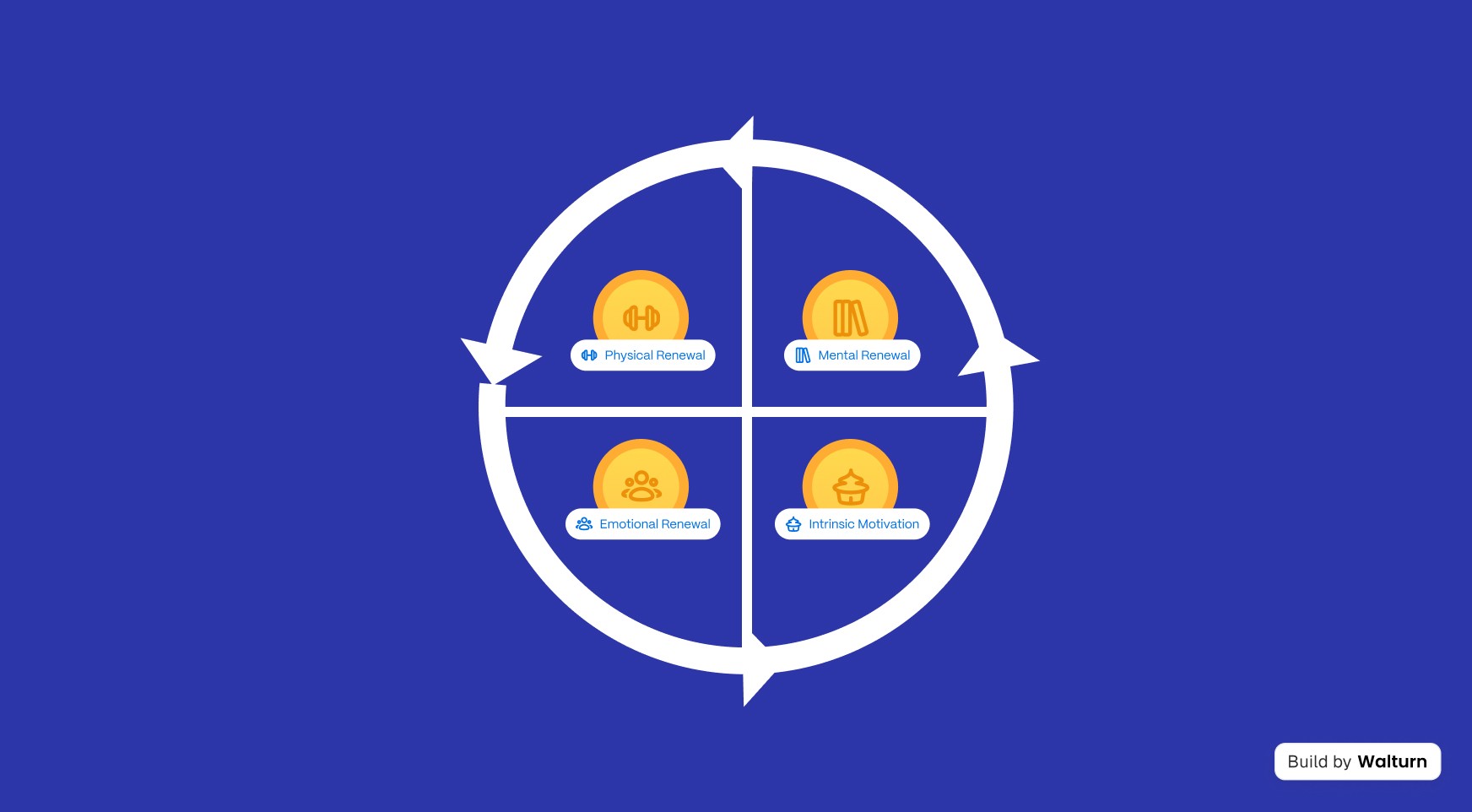The 7 Habits of Highly Effective People: A Book Review
Summary
Stephen Covey’s The 7 Habits of Highly Effective People is widely considered to be a timeless guide to personal and professional effectiveness. The book introduces seven habits, emphasizing growth from independence to interdependence, and continual self-renewal. The book remains a cornerstone in leadership and personal development literature, offering actionable insights that transcend industries and generations.
Key insights:
Timeless Principles: Covey’s framework is rooted in universal values of integrity, fairness, and human dignity.
Shift from Dependence to Interdependence: The framework guides individuals from personal responsibility toward collaborative success.
Proactivity and Responsibility: Encourages focusing on what can be controlled, rather than reacting to external circumstances.
Balancing Priorities: The Time Management Matrix helps differentiate between urgent tasks and those that align with long-term goals.
Continuous Growth: "Sharpen the Saw" emphasizes the importance of ongoing renewal across physical, mental, emotional, and spiritual dimensions.
Introduction
Stephen Covey was an educator, businessman, and thought leader whose insights on leadership and personal development have left an enduring legacy. He wrote The 7 Habits to address the growing disconnect between success and fulfillment, promoting long-term character development through ethical principles. With over 40 million copies sold worldwide, it is safe to say that his framework had an impact across cultures and industries.
Although it was first published 35 years ago, the book remains relevant due to its timeless principles and practical approach, often used in corporate training, education, and self-help. Critics, however, argue that its concepts are overly simplistic or cliché. Nonetheless, the framework’s timeless, universal principles ensure its continued relevance.
Key Ideas Stephen Covey Proposed
Stephen Covey’s philosophy centers on transformative concepts like the paradigm shift, which involves fundamentally changing one’s perspective to align behavior with core values. This shift enables individuals to see challenges and relationships through a more constructive and principle-centered lens. He also champions the idea of changing from within, suggesting that true effectiveness begins with self-mastery and personal responsibility before it extends to influencing others. Finally, Covey redefines success by shifting focus from superficial achievements to a values-driven approach that emphasizes long-term fulfillment over immediate gratification.
These foundational concepts are realized through seven habits that Covey grouped into three distinct categories. Below, we briefly summarize each category and habit.
Private Victory

The foundation of personal effectiveness begins with the private victory, where individuals focus on self-mastery. Covey emphasizes that personal growth must precede effective collaboration with others.
Habit 1: Be Proactive encourages individuals to take responsibility for their actions, choices, and attitudes. Rather than reacting to external circumstances, proactive people focus on what they can control. Covey writes, "Between stimulus and response is our greatest power—the freedom to choose," highlighting the importance of intentional decision-making. Essentially, proactivity involves not only action but also the mindset to influence one's environment rather than being controlled by it.
Practical tip: Build in regular reflection and planning times to learn from the past and think about what you might do differently in the future. During your regular planning sessions, you can also allocate time to consider what you can control and focus on how you can make the most of these aspects. Another powerful exercise is visualizing alternative outcomes and scenarios and thinking through how you might react in each case - this helps you gradually become more prepared for any situation, allowing you to avoid reactive responses.
Habit 2: Begin with the End in Mind centers on envisioning a clear purpose or direction for life. Covey advocates for defining personal and professional goals that align with enduring principles and values and he encourages readers to mentally visualize and plan. This habit pushes individuals to reflect on their legacy and make decisions consistent with their ultimate objectives.
Practical tip: Write a personal mission statement or create a vision board to clarify your goals and values. Review this regularly to ensure your actions align with your ultimate objectives. For example, in making career decisions, ask yourself if they move you closer to your long-term goals and reflect your core values. Doing so ensures each decision aligns with your broader purpose.
Habit 3: Put First Things First focuses on time management and prioritization. Using his Time Management Matrix, Covey differentiates between urgent and important tasks, urging individuals to prioritize activities that align with their values and goals. This habit encourages deliberate effort on what truly matters, ensuring that short-term pressures do not overshadow long-term objectives.
Practical tip: Prioritize tasks using Covey’s Time Management Matrix. Start each day by identifying tasks that are both urgent and important and focus on them first. At the beginning of each week, review your schedule to ensure that important but non-urgent activities (such as personal development, long-term projects, etc.) are given the time they deserve, avoiding the trap of urgent distractions.
Public Victory

Building on the private victory, the public victory expands effectiveness to interpersonal relationships. Covey highlights the principle of interdependence—working with others to achieve shared success.
Habit 4: Think Win-Win advocates for fostering relationships based on mutual benefit. Covey writes, "Win/Win is a belief in the Third Alternative. It’s not your way or my way; it’s a better way, a higher way." This habit challenges individuals to seek solutions where all parties feel valued and respected. It is not about compromise but about creating outcomes that maximize collective benefit.
Practical tip: Before entering discussions, ask yourself, "What do the other person’s goals and needs look like, and how can I support them?" Learn to lead with curiosity by practicing asking questions - you can do this all alone at first simply by picking a scenario and trying to list as many questions to stakeholders as you can. The goal is to go into conversations with an open mindset and ability to truly consider perspectives and goals other than your own.
Habit 5: Seek First to Understand, Then to Be Understood emphasizes empathetic listening as a cornerstone of effective communication. Covey observed that "Most people do not listen with the intent to understand; they listen with the intent to reply." By prioritizing understanding others’ perspectives, individuals can build trust and rapport, paving the way for meaningful dialogue and collaboration.
Practical tip: Practice active listening by avoiding interrupting others, asking clarifying questions, and reflecting back what you’ve heard to ensure understanding. If this is new to you or you are unsure how to do it well, you could watch example conversations on YouTube or attend relevant training sessions.
Habit 6: Synergize focuses on leveraging diversity to create innovative solutions. Covey describes synergy as "not just cooperation, but creative cooperation," where differences are not merely tolerated but celebrated as strengths. This habit emphasized the power of collective problem-solving to achieve results that exceed individual contributions.
Practical tip: Learn about inclusivity and diversity and upskill yourself in creating a safe space where everyone feels welcome to contribute. Training yourself in asking questions and actively listening will allow you to adapt to new teams and new kinds of diverse perspectives with ease.
Renewal

Habit 7: Sharpen the Saw addresses the importance of self-renewal across four dimensions: physical, mental, emotional, and spiritual. Covey asserts, "This is the single most powerful investment we can ever make in life - investment in ourselves." Regular renewal ensures sustained effectiveness by preventing burnout and fostering continuous growth. Physical renewal involves exercise and rest, mental renewal focuses on learning and reflection, emotional renewal emphasizes nurturing relationships, and spiritual renewal entails reconnecting with core values. This holistic approach ensures balance and longevity in both personal and professional pursuits.
Practical tip: Actively plan time for activities in all four dimensions and prioritize them. With a busy schedule, renewal is often what people give up on, even though we all know how important it is. Choosing recurring activities with a community aspect, such as a regular sports class, or religious service can help keep you on track.
Conclusion
The 7 Habits of Highly Effective People remains a foundational book in self-development and leadership literature, offering timeless principles of integrity, collaboration, and continuous renewal that provide a roadmap for navigating the complexities of modern life. While some critics may challenge its idealism, the book's enduring popularity is a testament to the lasting value of Covey's insights.














































